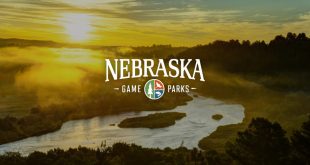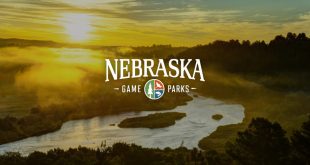LINCOLN, Neb. – The presence of adult zebra mussels in Omaha’s Cunningham Lake has been confirmed by the Nebraska Game and Parks Commission. As a result, the lake now is listed as an infested water body.
Microscopic young zebra mussels – or veligers – recently were detected in a water sample collected at Cunningham Lake by Game and Parks. Additional sampling found zebra mussels in various stages of development, including adults.
A zebra mussel is an aquatic invasive species that looks like a D-shaped clam, with alternating light and dark bands. Most zebra mussels are less than an inch long.
“These mussels form dense colonies and filter large amounts of plankton from water, decreasing the food supply for native species,’’ said Daryl Bauer, fisheries outreach program manager with Game and Parks. “Mussels increase water clarity, which expands the growth of unwanted vegetation. Their sharp shells are a hazard in swimming areas, and they clog water intake pipes.”
It is important not to transport any lake or river water, mud, or plant material away from its source as that could transport aquatic invasive species to another water body. Young zebra mussels are too small to see with the naked eye, so they can be transported unintentionally with water in bilges, outboard motors, live wells and bait buckets. Adult zebra mussel can attach to boats, trailers and aquatic vegetation.
There is concern that boats moored along the Missouri River or Cunningham Lake might be moving zebra mussels to other waters if the boats are not properly decontaminated. Boats transporting zebra mussels can be impounded and fined up to $500.
Signs are posted at Cunningham Lake to alert boaters and anglers to follow the Clean, Drain and Dry protocol to prevent the spread of zebra mussels. Visit neinvasives.com for details. There are no effective treatments to control zebra mussels once they have infested a water body other than draining the body to low levels to allow the mussels to dry out or freeze.
The City of Omaha, University of Nebraska Cooperative Fish and Wildlife Unit, the U.S. Army Corps of Engineers and Game and Parks will increase surveillance of boaters and anglers to increase awareness of the infestation. Additionally, the agencies will determine future management action on the area.
For more information about zebra mussels, visit neinvasives.com or read the 2018 Nebraska Fishing Guide. Report any suspected observation of zebra mussels to Game and Parks at 402-471-0641.
 Nebraskaland Magazine
Nebraskaland Magazine

